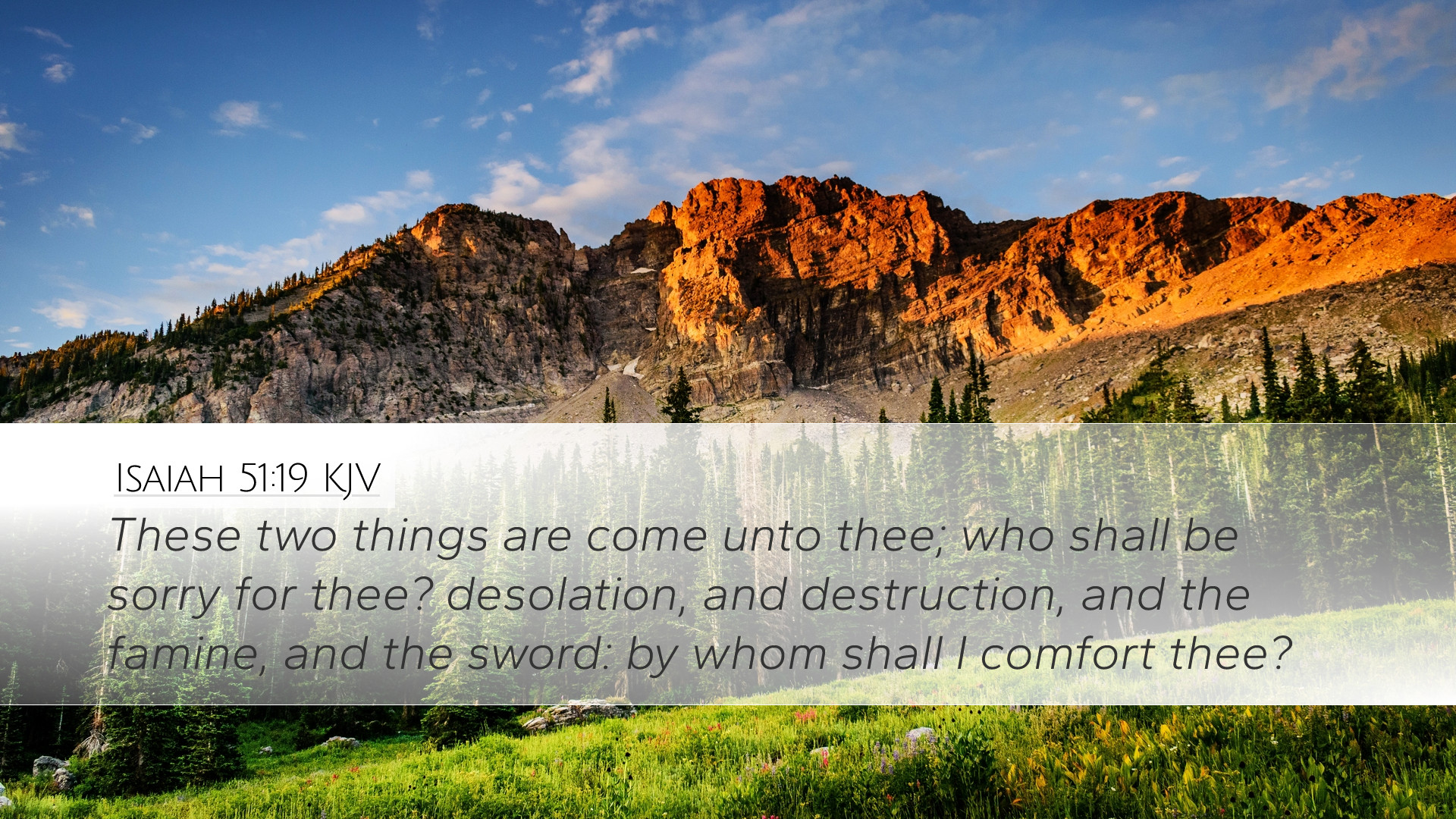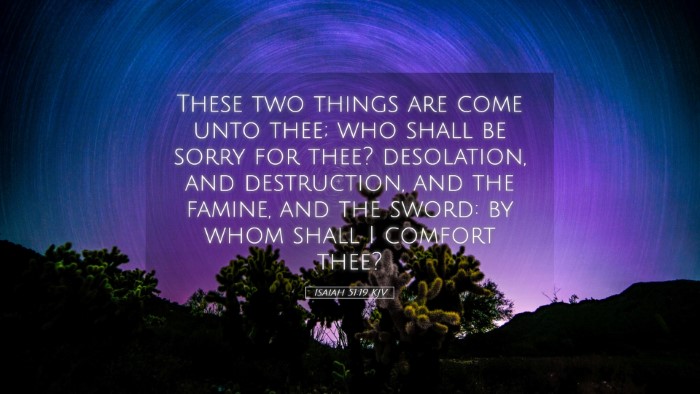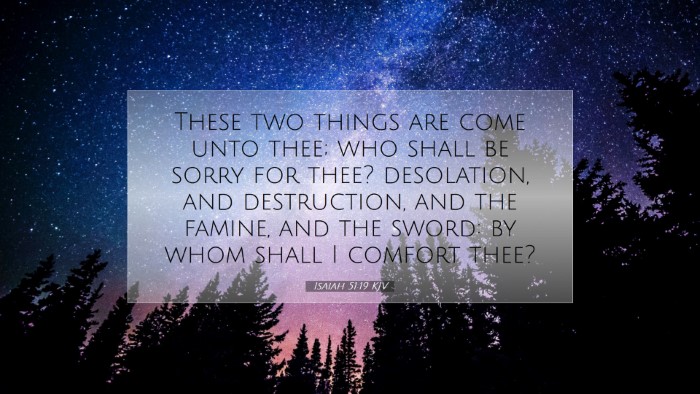Commentary on Isaiah 51:19
Isaiah 51:19 states: "These two things have come unto thee; who shall be sorry for thee? desolation, and destruction, and the famine, and the sword: by whom shall I comfort thee?" This verse provides profound insights into the themes of judgment, sorrow, and the hope of restoration.
Contextual Background
The Book of Isaiah is a rich tapestry of prophecy, addressing both immediate concerns of the people of Israel, as well as future events that would unfold in the history of salvation. Chapter 51 addresses the comfort of God and the impending judgments faced by the nation, particularly in the context of Babylonian captivity.
Insights from Matthew Henry
Matthew Henry, in his renowned commentary, underscores the dual themes of judgment and comfort. He begins by emphasizing that God's people have experienced great suffering due to their sins. In verse 19, Henry notes:
- Desolation: This reflects the spiritual barrenness resulting from God's judgment.
- Destruction: A comment on the physical consequences of their transgressions, highlighting the ruined state of Jerusalem.
- Famine: Symbolizes both a literal lack of sustenance and a spiritual hunger for the Word of God.
- Sword: Represents conflict and violence, indicating the severity of the trials they would face.
Henry emphasizes the profound sense of abandonment, as the rhetorical question, "who shall be sorry for thee?" serves as a stark reminder that the people have turned away from the Lord's protection. Yet, amid this desolation, there remains an innate desire for divine comfort.
Albert Barnes’ Perspective
Albert Barnes approaches this passage with a similar lens but offers additional clarity on the implications of Israel's plight. He articulates:
- The Cause of Grief: Barnes suggests that the cumulative effect of desolation, destruction, famine, and the sword results in a state of utter despair for God’s people.
- Lamentation Over Loss: Barnes highlights the emotional turmoil as the people grapple with their sorrow, illustrating the isolation felt by a community under divine punishment.
- Question of Comfort: The phrase, "by whom shall I comfort thee?" illustrates God's yearning for Israel to recognize their need for Him.
He notes that the absence of comfort comes from the absence of genuine repentance and reflects the tragic reality of spiritual blindness. This prompts readers to reflect on the importance of turning back to God to find solace.
Adam Clarke’s Commentary
Adam Clarke's exposition of this text dives deeper into the emotional resonance of the verse. Clarke comments on:
- The Significance of Each Element: Clarke elucidates the elements of destruction and famine as not just literal events but as symbolic of a larger divine plan concerning Israel’s fate.
- The Rhetorical Question: He implies that God's question is more than a challenge; it reflects a deep hurt regarding the relationship between God and His people.
- Call for Restoration: Clarke highlights how this verse serves as a pivot point, urging Israel to seek reconciliation with God, hinting at hope even amidst the troubling circumstances.
Clarke again presses the importance of recognizing the need for intercession and repentance, suggesting that despite the distress, there remains an open invitation for comfort through faith and trust in God.
Theological Reflections
This verse transcends its historical context, resonating deeply with contemporary audiences. The themes of judgment, despair, and the longing for divine comfort are universal experiences. For pastors and theologians, it serves as a reminder of the need for true repentance.
- Awareness of Sin: Understanding the implications of sin leads to genuine recognition of God’s displeasure, prompting believers to turn back to Him.
- Hope in Despair: Even in moments of desolation, the assurance that God desires to comfort His people remains a powerful message.
- Call to Action: This verse calls for believers to reach out in desperation and seek the Lord actively in times of trouble.
Conclusion
Isaiah 51:19, when viewed through the lenses of Matthew Henry, Albert Barnes, and Adam Clarke, paints a vivid picture of the trials faced by Israel while simultaneously offering a glimmer of hope for repentance and restoration. For contemporary readers, it serves as an enduring reminder of God’s faithfulness, His readiness to forgive, and the persistent call for His people to return to Him. As we grapple with our own experiences of sorrow and desolation, let this verse inspire us to lean into the uncomfortable questions and seek divine comfort through sincere repentance and relationship with God.


